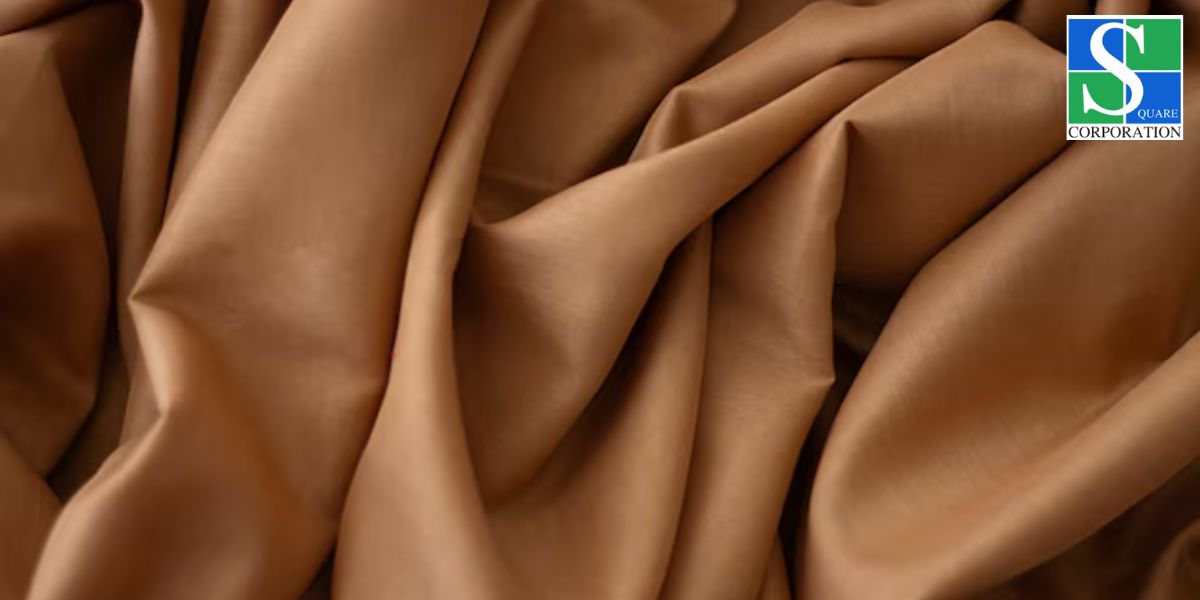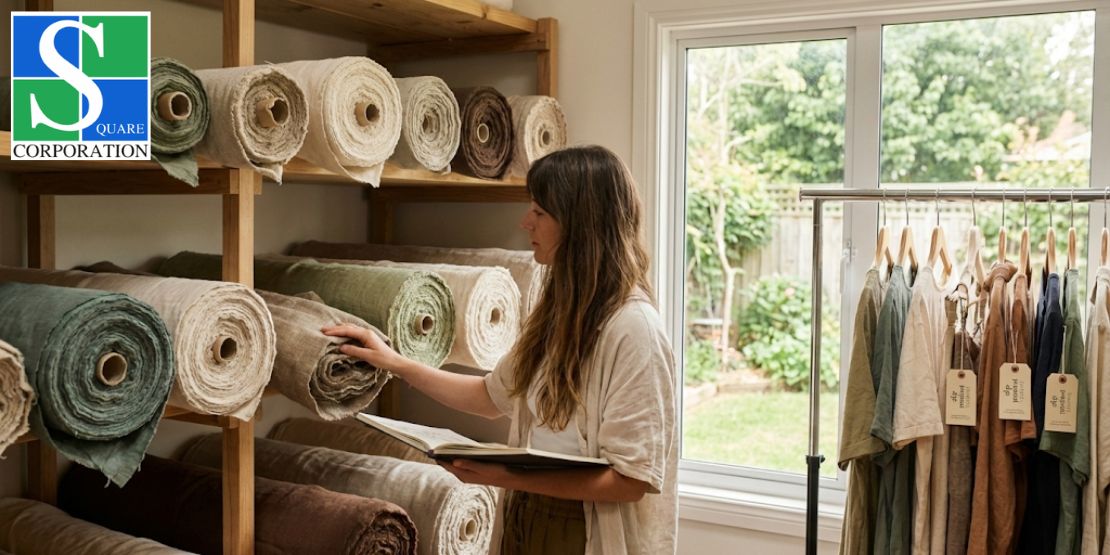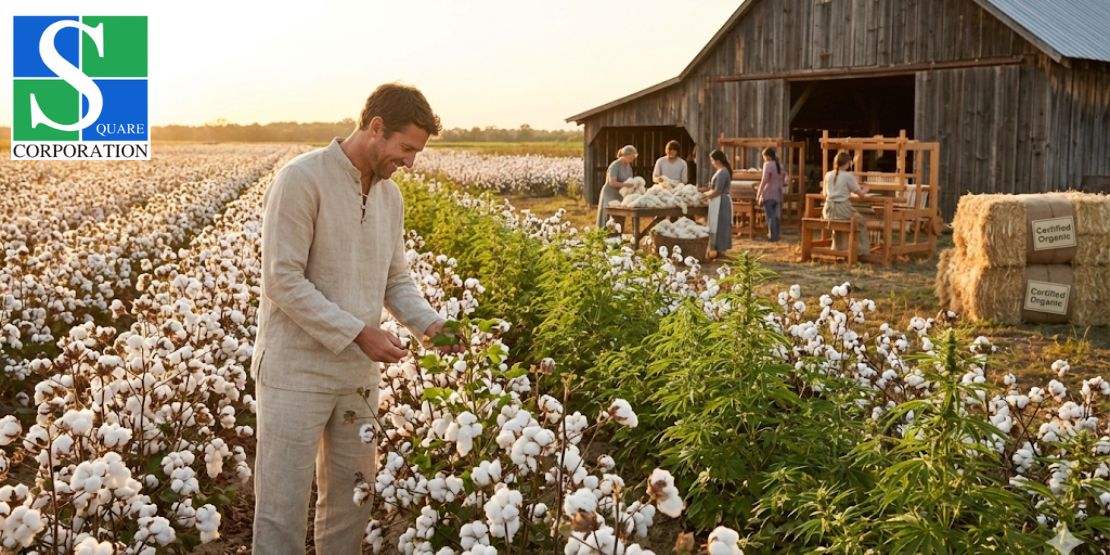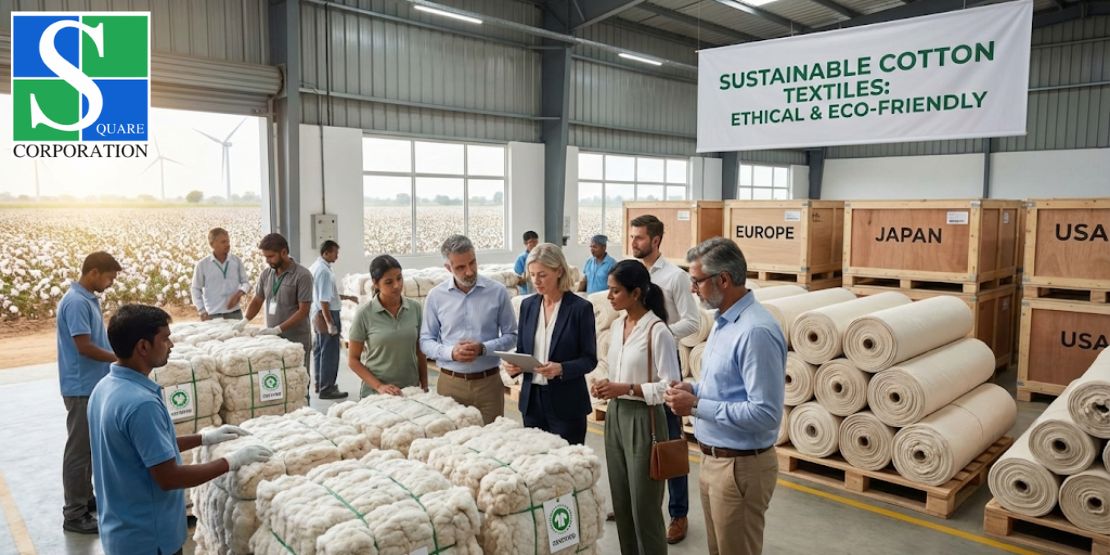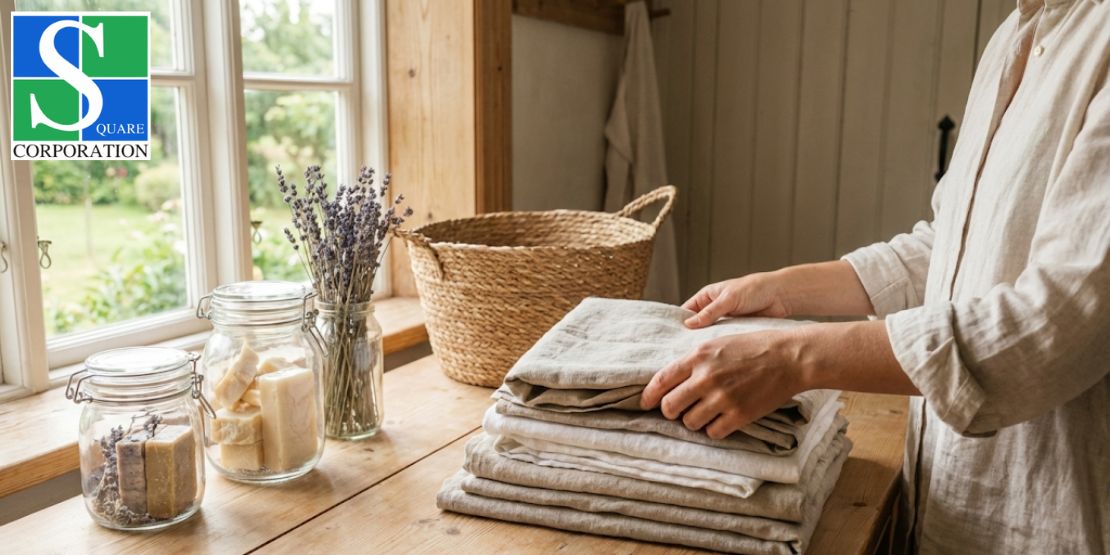10 February, 2026 | by Admin
Sustainable Fabrics: Explore the Power of Eco-Friendly Textiles
03 March, 2025 | by Admin
Is it necessary to choose the right yarn for fabric sustainability? As the textiles industry is transforming towards eco-friendly gesture, choosing the right fabric is vital for garments’ sustainability. From organic cotton to synthetic polyester, many yarns are available everywhere. However, organic cotton yarn is the most sustainable fabric for manufacturing sustainable garments.
Organic cotton farms play a vital role in manufacturing eco-friendly cotton yarn to minimize the environmental impact and produce the best eco-friendly garments for human health. This blog will explore the power of cotton yarn to enhance the effectiveness of eco-friendly textiles.
What is an Eco-Friendly Textile?
As the textile industry has the most harmful environmental impact, taking significant steps to stop its negative impact is vital. For that purpose, garment manufacturers shift their focus from chemically treated fabric to organic fabric for environmental benefits.
They try to follow natural processes and focus on recycling the finished products. Zero chemical use, less water conservation, reduced energy consumption, and ensured international certification are signs of eco-friendly textiles.
Explore the Variety of Sustainable Yarn
Cotton yarn is a type of sustainable yarn made from the fluffy white fiber of cotton plant. Manufacturers merge the white cotton fibers and transform them into yarn. It is the primary fabric for eco-friendly garments and is responsible for enhancing the growth of eco-friendly textiles. Let’s discuss the variety of cotton yarn used in garment manufacturing.
Bamboo Yarn
Bamboo fibers are the essential elements of bamboo yarn, which is biodegradable and renewable. The manufacturing process of bamboo yarn needs less energy and less water. Due to its antibacterial properties, bamboo yarn is suitable fabric for clothing.
Recycled Yarn
Recycled yarn manufacturers follow an innovative process that uses post-industrial waste such as wool, polyester, and cotton. Manufacturers use plant-based dyes to reduce the amount of synthetic chemicals in the recycled yarn.
Organic Cotton Yarn
Organic cotton yarn manufacturers mainly produce the yarn without using synthetic fertilizers, pesticides, and chemicals. This type of yarn is expensive and has zero environmental impact. Due to less water and energy use, organic cotton yarn enhances the possibility of eco-friendly textiles.
Wool Yarn
Fleece of sheep and goats are the raw material for wool yarn. As wool is a renewable and natural resource, wool yarn does not negatively impact the environment. Wool yarn works excellently as a sustainable fabric.
Why is Yarn Choice Vital for Sustainable Fabrics?
When garment manufacturers use a particular yarn as a fabric, it dramatically impacts the overall sustainability of the garment. Besides fabrics, production processes, dyeing techniques, and finishing treatments significantly affect the environmental footprint. For example, organic cotton minimizes chemical exposure to farmers, and recycled polyester reduces the demand for virgin oil.
By selecting the right yarns, organic cotton farms make a substantial social impact in reducing carbon usage and ensuring water conservation.
Conclusion
The role of a sustainable yarn is unmatched for the eco-friendly textile industry. If you want to choose the best organic yarn for your textile business, contact SQUARE CORPORATION. We are the top supplier and exporter of sustainable fabric and cotton yarn for the textile industry. Our Vats range of organic yarn will fulfill all your requirements. Discuss your requirements to get the best sustainable fabric at a reasonable price.
Related Posts
05 February, 2026 | by Admin
How to Compare Fabric Samples Effectively...
30 January, 2026 | by Admin

